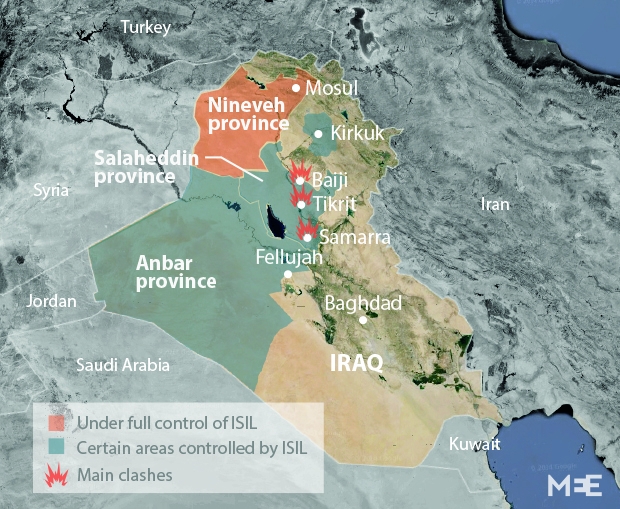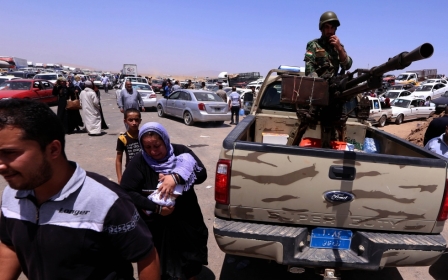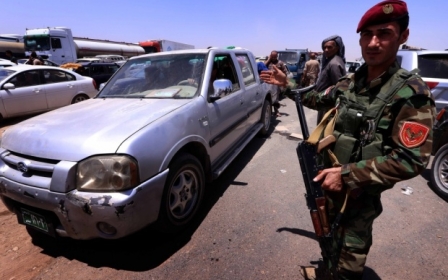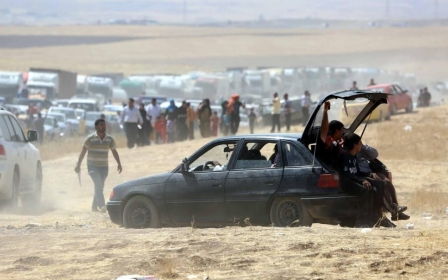US mulls drone strikes against Iraq militants
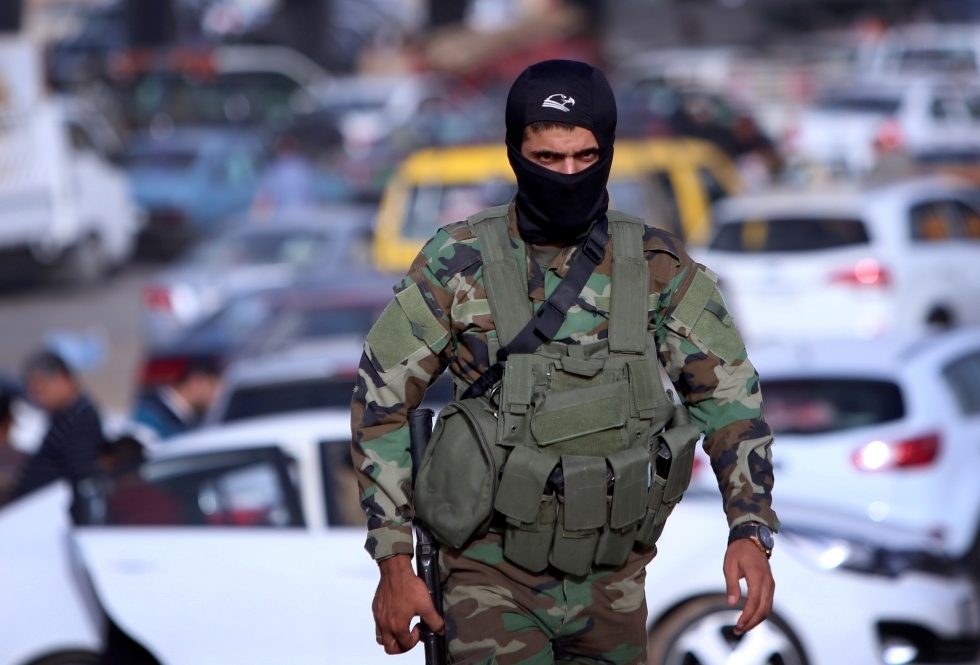
Militants have seized the Iraqi city of Tikrit as a militant offensive sweeps closer to Baghdad, prompting the UN Security Council to convene crisis talks Thursday while the US mulls air strikes on the rebels.
The Islamic State of Iraq and the Levant (ISIL) seized the second city of Mosul on Tuesday and has since captured a large swathe of northern and north-central Iraq including Tikrit - the hometown of executed dictator Saddam Hussein.
ISIL spokesman Abu Mohammed al-Adnani promised the battle would "rage" on the capital Baghdad and Karbala, a city southwest of the capital that is considered one of the holiest sites for Shiite Muslims, the SITE Intelligence Group said.
Fighters from ISIL seized the town of Dhuluiyah, a municipal councillor, a police colonel and witnesses told AFP by telephone.
The nearby Muatassam area has also fallen to militants, the municipal council member and witnesses said.
The UN Security Council swiftly convened a meeting to discuss the crisis in a sign of growing international alarm at the fast-moving situation.
Diplomats said the closed consultations would begin at 11:30 am (1530 GMT) and will include a briefing by video link from the UN special representative to Iraq, Nickolay Mladenov.
Washington is considering several options for offering military assistance to Baghdad, including drone strikes, a US official told AFP on condition of anonymity.
Resorting to such aircraft - used in Afghanistan and Pakistan in a highly controversial programme - would mark a dramatic shift in the US engagement in Iraq, after the last American troops pulled out in late 2011.
State Department spokeswoman Jen Psaki said the US was committed to "working with the Iraqi government and leaders across Iraq to support a unified approach against ISIL's continued aggression".
No US troops back into Iraq
But there is no current plan to send US troops back into Iraq, where around 4,500 American soldiers died during the 2003 invasion and subsequent occupation.
White House spokesman Jay Carney said Washington "strongly condemns" the ISIL attacks and "will stand with Iraqi leaders".
And UN Secretary-General Ban Ki-moon urged the international community to unite behind Iraq, warning that "terrorism must not be allowed to succeed in undoing the path towards democracy".
In his weekly address Wednesday, Prime Minister Nuri al-Maliki renewed his call to arm civilians to resist the militants.
Maliki urged Nineveh's residents "and its tribes to stand with the army and police".
Foreign Secretary William Hague said there was "no question" of British troops being sent back to Iraq.
On Wednesday, gunmen in military uniforms and all-black clothing guarded government buildings and banks in the city, residents told AFP by telephone.
Militants stormed the Turkish consulate and kidnapped 49 people, including the head of the mission and three children, a Turkish official said.
Thirty one Turkish truck drivers were also seized by ISIL at a Mosul power station, with Ankara pledging harsh reprisals if any were harmed.
Not allowed into Erbil
The gunmen did not enter Kirkuk city, but the army withdrew from positions in the surrounding province and their places have been taken by members of the Kurdish peshmerga security forces, according to Kirkuk Governor Najm al-Din Karim, himself a Kurd.
A peshmerga commander, Brigadier General Shirko Rauf, confirmed Thursday that his men were in control of the disputed city and were readying to move towards areas seized by ISIL.
But many families fleeing Mosul are complaining that the Iraq's Kurdish authorities are not allowing them into Erbil.
"The Kurds are trying to show everybody that they are receiving all the hundreds of thousands of refugees but the truth is there are a lot of people stranded on the border between the Kurdish area and the outskirts of Mosul district," said Fareed Sabri, a former spokesperson for the Iraqi Islamic Party 2006-08.
"A lot of people are coming back because they are not being allowed into the Kurdish area, I know people personally who are stranded on the borders," he added.
Meanwhile, parliament was to hold an emergency session Thursday to consider a request from Maliki and the president's office to declare a state of emergency.
Doing so requires a two-thirds vote, making it unlikely to pass the sharply divided parliament.
In Tehran, President Rouhani went live on television to denounce the "extremist, terrorist group that is acting savagely" in Iraq and warned that Iran would not tolerate "this violence and terror."
He said he would later meet the Supreme National Security Council, which would have to approve any military support Tehran might want to provide to Baghdad.
Jordan closes opposition Iraq TV channel
Neighbouring Jordan has shut down an Amman-based Iraqi opposition television channel critical of Maliki and arrested journalists, Reporters Without Borders (RSF) said Wednesday.
Authorities raided the Al-Abasiya satellite station Monday and arrested 14 Iraqi, Jordanian and Syrian journalists after Baghdad accused it of "inciting terrorism and sectarian conflicts".
"We have often reported that Nuri al-Maliki gags the media in Iraq but it seems he is not content with that and now wants to silence critical media based outside his country," RSF said.
"At the same time, by bowing to pressure... from Baghdad, the Jordanians have flouted their international obligations regarding media freedom and protection from arbitrary arrest," it said.
The organisation, which claimed those arrested had been ordered detained for 14 days, called for their immediate release and the reopening of the TV station.
Jordan's Audiovisual Commission chief Amjad Qadi told AFP Al-Abasiya was broadcasting from Jordan illegally, without a licence.
"It worked secretly from an apartment in Amman and broadcast only after midnight. When the authorities raided the apartment, they found things that have nothing to do with the media," he added, without elaborating.
RSF said the Iraqi authorities have initiated legal action against several other Iraqi satellite television stations for allegedly inciting violence and sectarianism in their broadcasts from Jordan.
Al-Abasiya, which began broadcasting from Amman four years ago, "has been critical of both the Maliki administration and Iran's alleged meddling in the region," it added.
Jordan ranked 141st and Iraq 153rd on the 2014 RSF Press Freedom Index.
New MEE newsletter: Jerusalem Dispatch
Sign up to get the latest insights and analysis on Israel-Palestine, alongside Turkey Unpacked and other MEE newsletters
Middle East Eye delivers independent and unrivalled coverage and analysis of the Middle East, North Africa and beyond. To learn more about republishing this content and the associated fees, please fill out this form. More about MEE can be found here.


